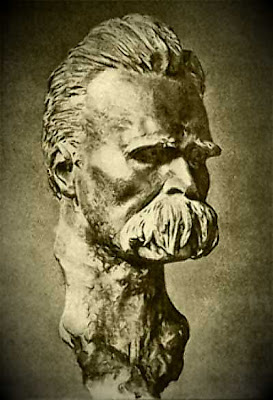>
All passions have a phase when they are merely disastrous, when they drag down their victim with the weight of stupidity — and a later, very much later phase when they wed the spirit, when they “spiritualize” themselves. Formerly, in view of the element of stupidity in passion, war was declared on passion itself, its destruction was plotted; all the old moral monsters are agreed on this: il faut tuer les passions (“One must kill the passions”). The most famous formula for this is to be found in the New Testament, in that Sermon on the Mount, where, incidentally, things are by no means looked at from a height. There it is said, for example, with particular reference to sexuality: “If thy eye offend thee, pluck it out.” Fortunately, no Christian acts in accordance with this precept. Destroying the passions and cravings, merely as a preventive measure against their stupidity and the unpleasant consequences of this stupidity — today this itself strikes us as merely another acute form of stupidity. We no longer admire dentists who “pluck out” teeth so that they will not hurt any more.
To be fair, it should be admitted, however, that on the ground out of which Christianity grew, the concept of the “spiritualization of passion” could never have been formed. After all, the first church, as is well known, fought against the “intelligent” in favor of the “poor in spirit.” How could one expect from it an intelligent war against passion? The church fights passion with excision in every sense: its practice, its “cure,” is castratism. It never asks: “How can one spiritualize, beautify, deify a craving?” It has at all times laid the stress of discipline on extirpation (of sensuality, of pride, of the lust to rule, of avarice, of vengefulness). But an attack on the roots of passion means an attack on the roots of life: the practice of the church is hostile to life.
From Twilight of The Idols (1889).